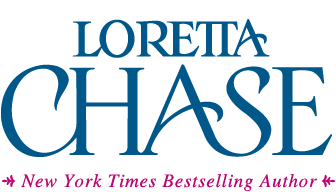A reader asks:
“Every once in a while a character in a historical romance will be referred to simply as Lord Such-and-such, with no indication ever being given as to what his title actually is (Earl, Viscount, Baron). Sometimes the title is the same as the last name, sometimes it is different. Was this a typical way to refer to nobility at times, with the actual rank being a given to those of the time? Was the rank understood to be different if the last name was the same?”

British titles and styles of address is a quicksand topic. One of my favorite quotations on this subject comes from my 1936 Whitaker’s Peerage, Baronetage, Knightage and Companionage:
“The rules which govern the arrangements of the Peerage are marked by so many complications that even an expert may occasionally be perplexed.” (italics mine)
This is why, whenever I respond to questions about same, I do so with trembling typing fingers, sure that someone, somewhere, will remind me of an exception I forgot to except or a subtlety I’ve overlooked. As I try to answer your question, please bear that in mind.

The grades of the peerage are, in order of rank, Duke, Marquess or Marquis (pronounced “markwiss” or "markwess" but not "markee"), Earl, Viscount (rhymes with My Count--"s" is silent), Baron. Anyone referred to or addressed as Lord So & So is below the rank of Duke.
How do we know this? A duke is addressed as Your Grace (older style guides include the form My Lord Duke) or, by equals, Duke. He might be referred to as the Duke of Someplace, e.g., the gentleman here is the Duke of Wellington. But the duke is never Lord Wellington. (This rule does not apply to Royal Dukes, who are younger sons of the monarch. They’re addressed differently.)

Below the rank of Duke, the correct form is “Lord.” So a Lord Somebody is a Marquess/Marquis, Earl, Viscount, or Baron. One doesn’t address these peers as Marquess of So & So or Baron Such & Such, and normally doesn’t refer to them by their rank. In conversation, people would refer to this gentleman, the Earl of Egremont, as Lord Egremont or, very informally, Egremont.
According to my Titles and Forms of Address: “All peers and peeresses below ducal rank are called lord and lady in speech....there are a few formal occasions in which the full title would be used, but it would never happen in intimate speech.”
Sometimes the title is the same as the last name and sometimes not. For a great many peerages, the title comes from the name of a place. All dukes’ titles are from a place, even when the family name is the same as the title. But a baron’s title might come from a place, his family name, or another source entirely.

If there's no “of”, that doesn’t necessarily mean it’s a family name. And if there is an “of”, that doesn’t mean it isn’t a family name.
The first Earl Granville--whose wife raised the two illegitimate children he had with her aunt--is missing the "of," though Granville isn’t his family name but the name of an ancestor whose title became extinct. This earl's family name is Leveson-Gower, pronounced lewson-gorr (pronunciation is another minefield).


Leveson-Gower is also the family name of the Duke of Sutherland, who’s selling the Titian and who has a really nice place in Scotland, Dunrobin Castle, that I got to visit years ago when the dollar wasn’t like Monopoly money. (That's me at his place with the owl.)
But I digress.
Viscounts and Barons, whether the title is from a place or not, don’t have an “of” in their titles, thus, the Viscount Hereford or the Baron Headley.

So no, there’s no way to tell the rank simply from the name used in the title. Those with whom they associate are supposed to know whether Lord Castlereagh here is a marquess or earl or viscount or baron. I’ve always imagined that members of the aristocracy learned who was who in the same way they learned to speak, and the knowledge was, like accent, one of the ways members of the upper orders could tell who was one of them and who wasn’t. It was a small world, after all.
And that’s as far as I dare to go on the topic. Not a word about younger sons, wives, daughters, son’s wives, daughter’s husbands, etc.

If you’d like to explore this labyrinth, there are plenty of references. In addition to the aforementioned Whitakers, and an 1811 Debretts reprint, my frequently-used guides are:
Titles and Forms of Address: A Guide to Correct Use, A&C Black, London.
Measures, Howard. Styles of Address. Thomas Y Crowell
Emily Hendrickson, The Regency Reference Book. An excellent reference for a great many Regency-era subjects, it's sold privately. Contact Emily at regencygal@hotmail.com for information or to order a copy.
Candice Hern has heaps of terrific Regency-era stuff on her website, including a Who’s Who of the lords & ladies we often encounter in the stories and a fabulous collection of fashion plates.

Of course, not everyone needs to know more. Before I got into this business, I had very little understanding of British titles and would not have known or cared when an author used the incorrect form. Now that I do know, such mistakes may unsuspend my suspension of disbelief.
(Originally published at Word Wenches)

















